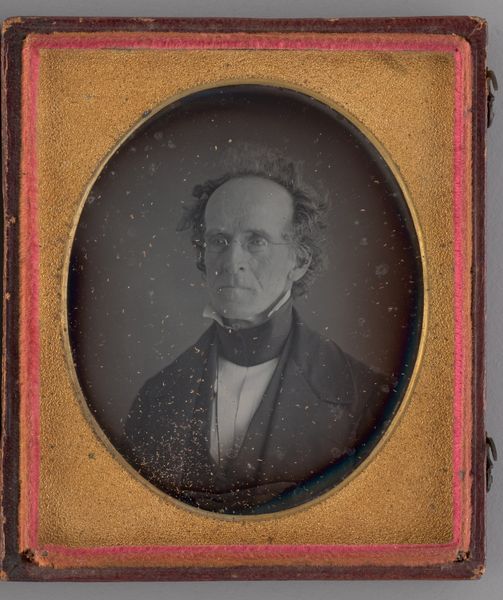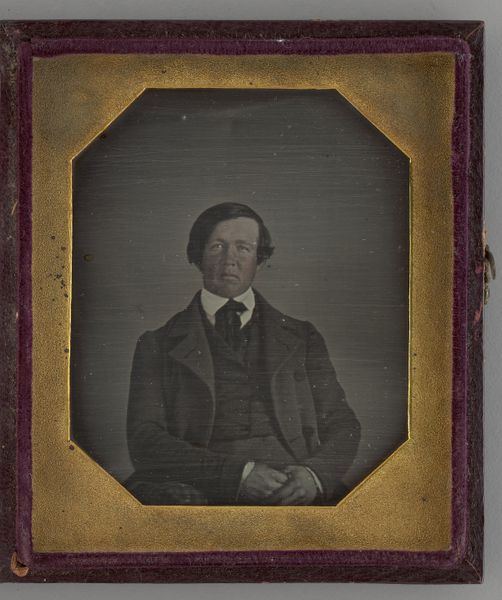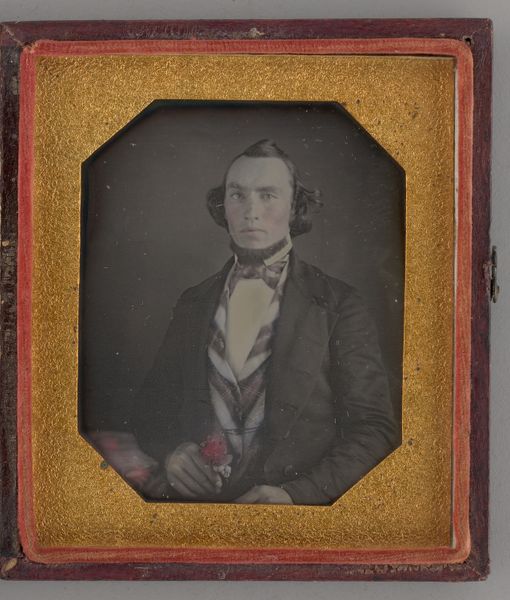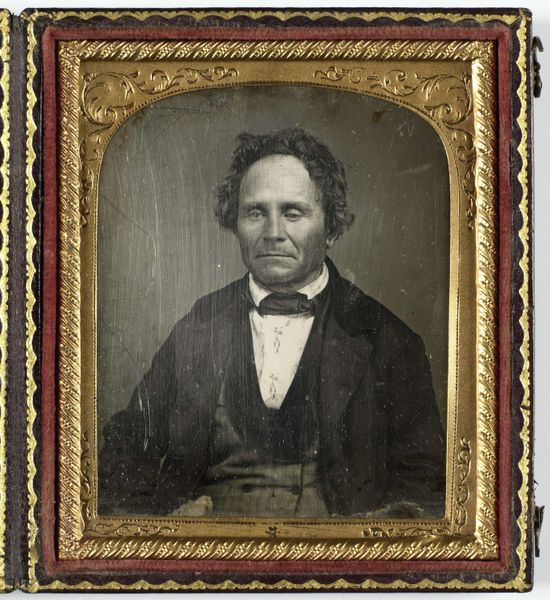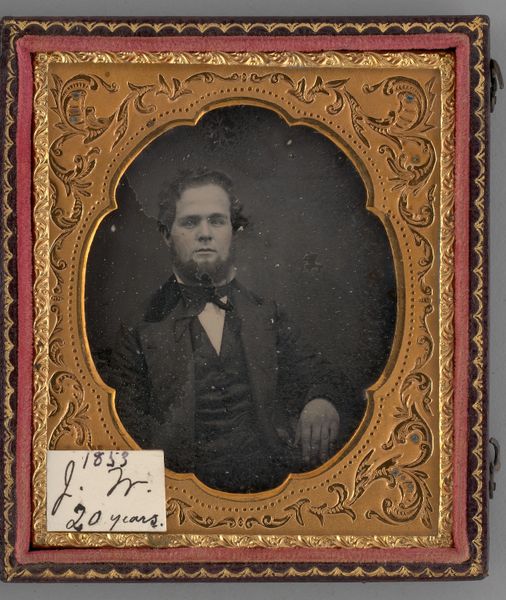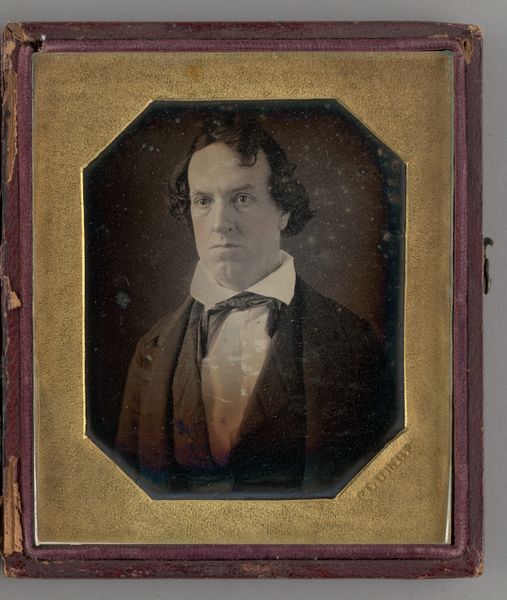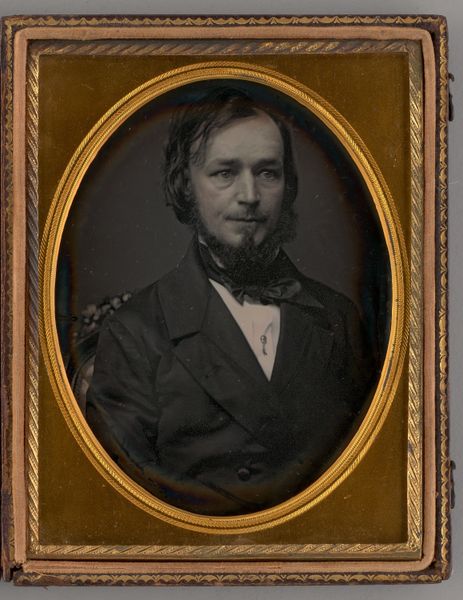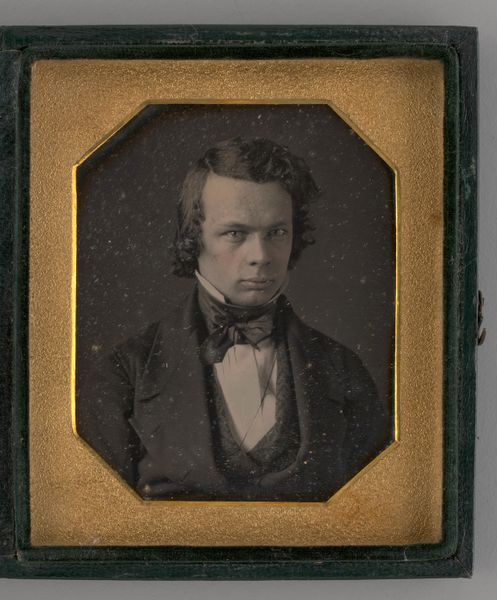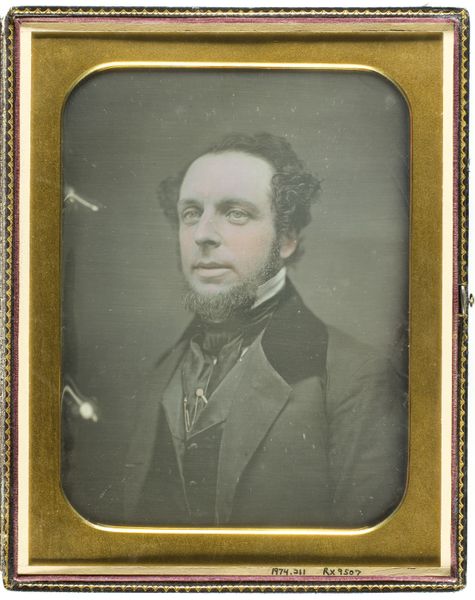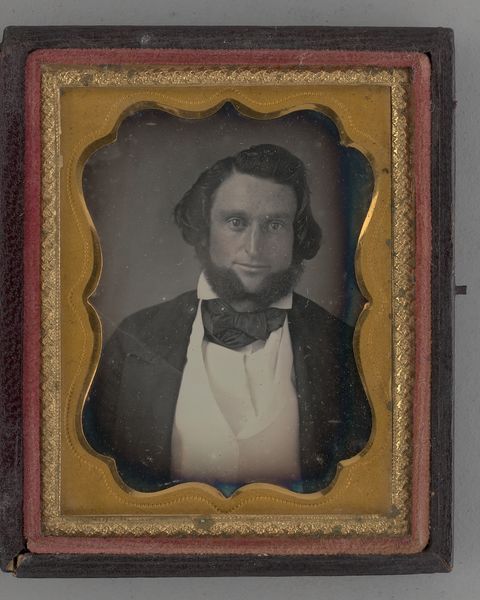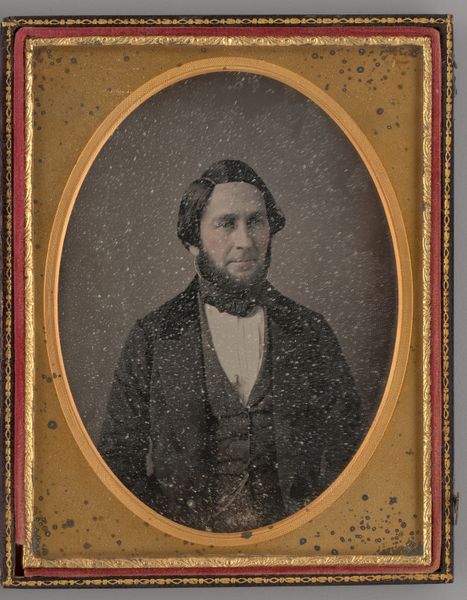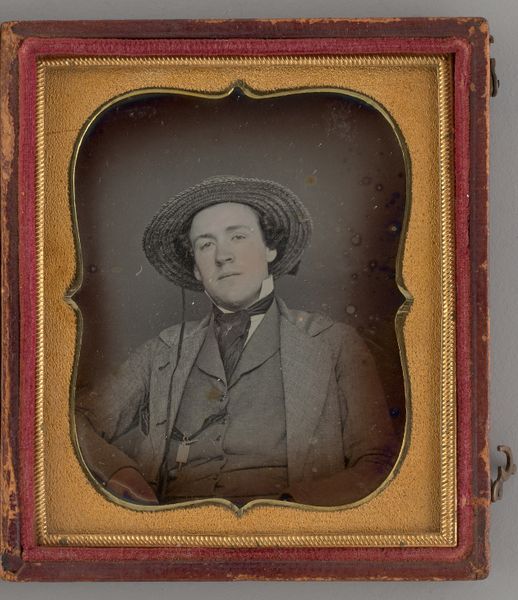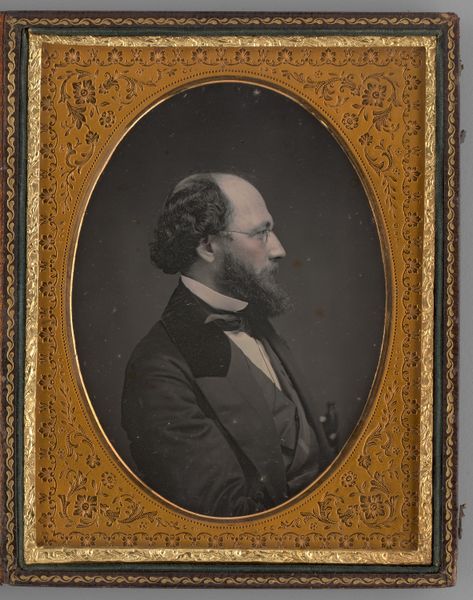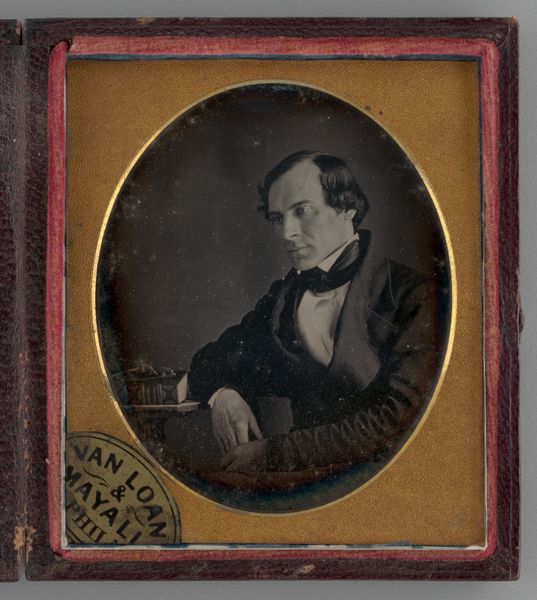
daguerreotype, photography
#
portrait
#
16_19th-century
#
daguerreotype
#
photography
#
geometric
#
realism
Dimensions: 10.3 × 8.1 cm (plate, appro×.); 9.1 × 6.6 cm (image, sight); 12.1 × 9.3 × .6 cm (case)
Copyright: Public Domain
This daguerreotype, a small photographic portrait of a man, is housed at the Art Institute of Chicago and was created by an anonymous artist. The sitter's direct gaze is framed by a dark coat, loosely tied cravat and untamed hair and beard. The composition is stark and symmetrical, with the man's face centered against a dark background. Consider how this early photographic process flattens the image, reducing the play of light and shadow, and heightening the textural elements of the man's beard and clothing. The rigid formality of the portrait and the sitter’s contained expression create a tension between public presentation and private self. The mirror-like surface invites us to reflect on the act of seeing and being seen. This image raises questions about the nature of representation itself. Does the photograph capture an objective likeness, or is it a constructed image mediated by the photographer's choices and the sitter's performance? The daguerreotype is more than just a historical artifact; it is a cultural object that invites us to contemplate the complex relationship between image, identity, and perception.
Comments
No comments
Be the first to comment and join the conversation on the ultimate creative platform.
